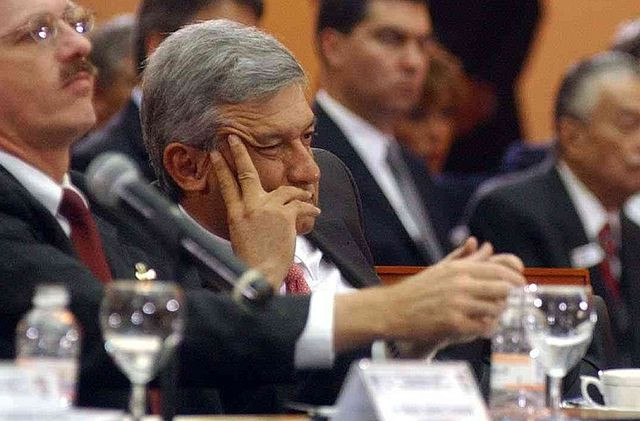Mexican President Andrés Manuel López Obrador announced a "pause" in relations with the U.S. and Canadian embassies. This decision follows sharp criticism from the two countries regarding his proposed judicial reforms. The announcement, made during a press conference on August 27, marks a significant escalation in the already fraught relationship between Mexico and its northern neighbors.
López Obrador's declaration comes in response to statements made by U.S. Ambassador Ken Salazar and Canadian Ambassador Graeme Clark. Salazar, in a statement posted on social media, labeled the judicial reform proposal as a "major risk" to Mexico's democracy, while Clark expressed concerns about the potential erosion of independent regulatory bodies. The proposed reforms would allow judges, including Supreme Court justices, to be elected by popular vote, a move López Obrador argues will democratize and cleanse the judicial system of corruption.
During the press conference, López Obrador expressed his frustration, questioning how an ambassador could publicly denounce a policy he deems vital to Mexico's sovereignty. "How are we going to permit him to opine that what we're doing is wrong?" López Obrador asked rhetorically. He emphasized that while the diplomatic pause does not equate to a severance of relations with the U.S. and Canada as nations, it reflects dissatisfaction with the interference from their diplomatic representatives.
The tensions have been exacerbated by the ongoing judicial strike in Mexico. Judges across the country have protested against the proposed reforms, with the Mexican Supreme Court suspending its sessions in solidarity with the demonstrators. Federal Judge Catalina Ruiz, who is leading protests in Ciudad Juarez, voiced fears that the reforms could lead to unqualified individuals becoming judges, undermining the integrity of the judicial system.
López Obrador's stance has further complicated relations with the U.S. and Canada, two of Mexico's most significant trading partners. Last year, Mexico surpassed China to become the largest trading partner of the United States, underscoring the economic interdependence between the two nations. The judicial reform debate has raised concerns that such tensions might threaten the stability of this critical trade relationship.
Duncan Wood, Chief Executive of the Pacific Council on International Policy, noted that Salazar's public criticism was unusual, given his preference for handling disputes discreetly. Wood suggested that the timing of the criticism, coinciding with the end of López Obrador's term, might reflect a strategic decision by Salazar to address issues more forcefully before the incoming administration. President-elect Claudia Sheinbaum, who will succeed López Obrador in October, has expressed support for the reforms, further complicating the diplomatic landscape.
In response to the criticism, López Obrador has suggested that relations with the U.S. and Canada will remain "on pause" until the diplomats demonstrate greater respect for Mexico's sovereignty. He criticized what he described as a coordinated effort by the U.S. and Canada to interfere in Mexican internal affairs, implying that their critiques were an attempt to influence domestic policy.
The judicial reform proposal, which includes eliminating several independent regulatory bodies, has been contentious. Supporters argue that it is necessary to address systemic corruption and inefficiencies within the judiciary, while critics fear it will undermine judicial independence and concentrate power within the executive branch. The proposed changes are set to be reviewed by the newly elected Congress, which convenes in September. The reform's success will depend on securing a two-thirds majority in both houses, a challenging but not impossible feat given López Obrador's party's strong position.
Meanwhile, Foreign Minister Alicia Bárcena has affirmed Mexico's commitment to maintaining a constructive relationship with North America's neighboring countries despite the current diplomatic pause. She emphasized the importance of ongoing dialogue and cooperation, even as López Obrador remains firm on his stance regarding sovereignty and internal reforms.
The decision to pause relations echoes a previous diplomatic freeze imposed by López Obrador in 2022 with Spain, which was framed as a protest against perceived abuses. This historical context suggests that López Obrador's latest move is part of a broader pattern of using diplomatic pauses as a tool to assert national sovereignty and respond to international criticism.




